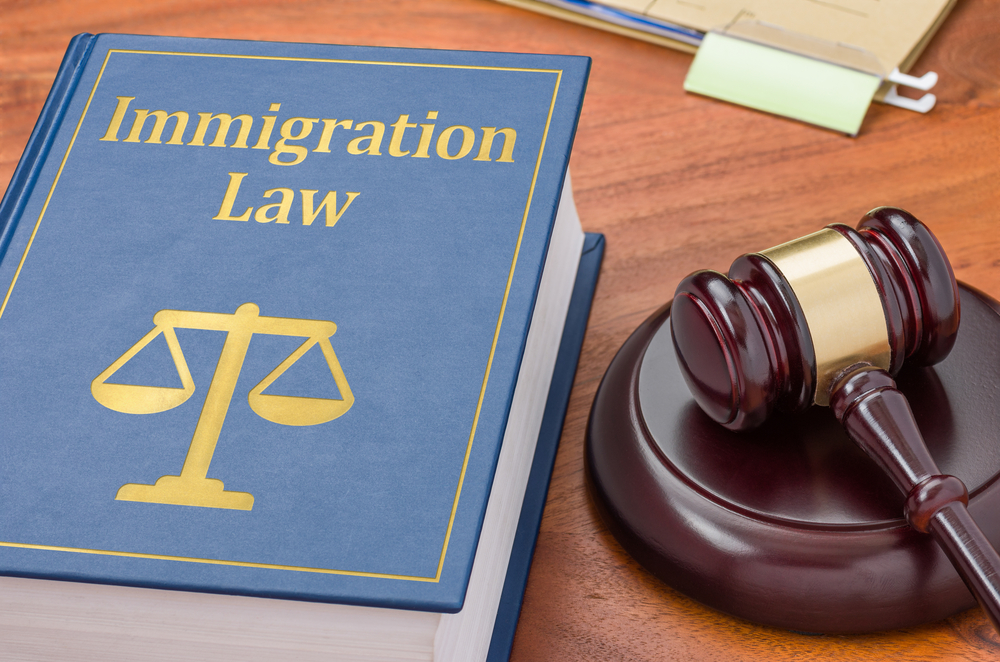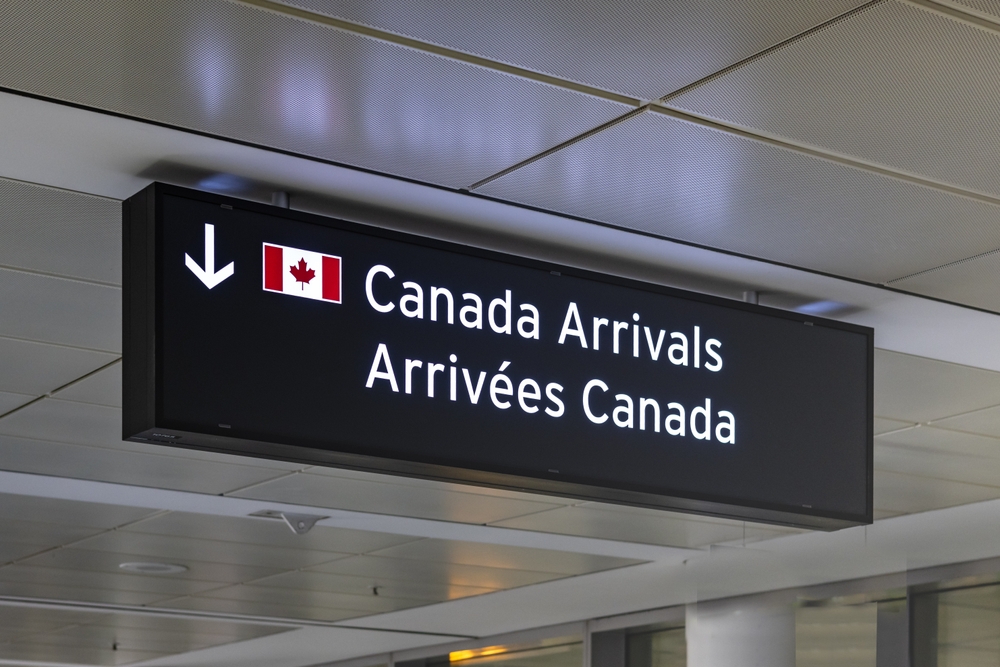For those hoping to escape violence and persecution in their home countries, seeking refuge overseas can be a beacon of safety during dangerous times of political turmoil and strife. Canada is well-known for its welcoming stance towards refugees and asylum seekers, ranking fifth globally for asylum claims in 2023 alone (source). The Canadian Government remains strongly committed to upholding international humanitarian standards. It is consistently a front-runner among Western nations that seek to uphold the 1951 Refugee Convention by offering refuge and protection to those who cannot return to their home countries due to well-founded fears of persecution.
While the concept of settling on safe ground is a source of relief for many, it is crucial to be aware of who qualifies for safe refuge on Canadian soil and how to pursue refugee claims correctly.
At Vayeghan Litigation, we understand that those fleeing international conflicts and persecution in their country of origin rarely have the luxury of time or informational resources and often require assistance achieving refugee or asylum status in Canada. Our team of experienced immigration lawyers is proud to assist those seeking protection in Canada and is here to help ensure your voice and needs are heard when it matters most.
Below, we will highlight some of the most crucial information points to be aware of when seeking refugee status in Canada, as well as the benefits of partnering with an experienced attorney when filing your claim. Read on to learn more.
Who Qualifies as a Refugee in Canada?
Foreign nationals who have legitimate reasons to fear persecution or who are at risk of serious harm and cannot get protection within their home country may qualify for refugee protection in Canada. Those with accepted refugee status are allowed to remain in the country and may apply for Permanent Resident (PR) status, which grants them many of the same rights and abilities as Canadian citizens. Many who pursue their PR also go on to eventually claim Canadian citizenship, becoming naturalized citizens and solidifying their new lives in a newfound home.
With this being said, not all foreign nationals in refugee-like situations will qualify for refugee protection. Knowing who and what qualifies is essential to having your claim accepted by the Immigration and Refugee Board (IRB). There are two general types of refugees admitted into Canada: Convention Refugees and Persons in Need Protection. The designation of each category is as follows:
Convention Refugees
Under Canadian law, a person is recognized as a Convention Refugee if they meet specific criteria outlined in the 1951 Refugee Convention. They must have a legitimate fear of persecution in their home country based on one or more of the following grounds:
-
Race (racial background or ethnicity)
-
Religion (religious beliefs, particularly in regions where religious freedoms do not exist or are not protected)
-
Nationality (national origin or belonging to a specific ethnic group)- Political Opinion (persecution due to political beliefs or activities, which is prevalent in countries with repressive regimes)
- Membership in a Particular Social Group (gender, sexual orientation, family status, or belonging to a social group that is not recognized or is actively targeted within their home country)
To be accepted under the Convention Refugee protocols, claimants must be able to demonstrate that they cannot be returned to their country of origin without facing significant persecution, and that their government is either unwilling or unable to provide protection and support.
Persons in Need of Protection
A Person in Need of Protection is an individual already in Canada who, if removed to their home country, would face a significant risk of irreparable harm, including:
- Torture
- Risk to life due to armed conflict, violence, or other severe threats
- The threat of cruel and unusual punishment
As with claiming refugee status, an individual must present substantial evidence to back their claims of persecution and risk to become recognized as a Person in Need of Protection. However, it is worth noting that, under this particular classification, it must also be proven that the risks above apply uniquely to the individual in question, not an entire population.
Country of Asylum Class (Humanitarian-Protected Persons Abroad)
For those who are outside of Canada and are in refugee-like situations but who may not meet the definition of a refugee under the 1951 convention, there is still the possibility of entering Canada by obtaining Asylum classification. Individuals may qualify for protection if they have been directly affected by civil war, armed conflict, and/or massive violation(s) of human rights. Individuals who qualify under the Country of Asylum Class may be referred to Canada for resettlement by the United Nations High Commissioner for Refugees (UNHCR), another referral organization, or through private sponsorship.
It is crucial to note that, to receive asylum status, you must not have any criminal convictions or have any prior denied refugee applications. As with obtaining refugee status (more on that below), your claim will be subject to review and undergo strict processing to verify your claims.
How to Claim Refugee Status in Canada
Under the Safe Third Country Agreement (STCA), a bilateral treaty between the US and Canada designed to help manage the flow of refugees across the border, refugee claimants must seek protection in the first safe country they arrive in (often the United States) unless they qualify for certain exceptions, such as having family in Canada, being an unaccompanied minor, or holding certain state documents, such as a valid Canadian visa.
Within Canada, refugee claims may be made at a Port of Entry (POE), such as an airport or border crossing, or from within Canada. Most claims are made online through a designated portal, where the claimant provides personal information and a detailed account of the reasons for seeking asylum, known as the Basis of Claim (BOC). Once a claim has been made, the Canada Border Services Agency (CBSA) or Immigration, Refugees, and Citizenship Canada (IRCC) will review it to determine if it meets the eligibility criteria listed above under either refugee class.
It is crucial to be aware that even if you fit the conventional definition of a refugee, your claim may still be denied on the following grounds:– The claimant has already been recognized as a Convention Refugee in another State where they can return
- The claimant is inadmissible to Canada due to security concerns, human rights violations, or known criminality.
- The claimant has previously received protected status in Canada.
- The claimant originally landed in the United States and does not fall under exceptions to the STCA, meaning they are not eligible for refugee status in Canada.
If your claim is found eligible, it is then referred to the Refugee Protection Division (RPD) of the IRB to schedule an admissibility hearing. This hearing is essential to being granted refugee status. It gives the claimants a dedicated opportunity to present their case, verify their reasons for applying for refuge, and create a compelling case to remain in Canada. To build the strongest case possible, claimants often submit evidence to bolster their application and are frequently assisted by experienced legal counsel skilled in immigration law.
Vayeghan Litigation’s team of immigration lawyers know just how critical these hearings are to successful refugee claims and partner with those seeking asylum and refugee status to ensure that you have the strongest, most compelling case possible to grant you the ability to remain in Canada and escape persecution in your country of origin.
Handling Rejected Claims
The unfortunate reality of seeking refuge and asylum in Canada as a foreign national is that not all claims will be accepted by the Immigration and Refugee Board of Canada. Certain factors like having an existing criminal record (even for minor offences) and failing to meet qualifying factors can result in a denied application. Should this occur, you may have the right to appeal your refusal to the Refugee Appeal Division or to review the decision at the Federal Court of Canada. In such cases, partnering with an immigration lawyer is imperative, as failure to reverse this decision will result in either a deportation or removal order that forces an individual to leave Canadian soil.
Legal Support and Guidance for Refugees Seeking to Remain in Canada
At Vayeghan Litigation, we know that achieving refugee status can be an overwhelming process for those who have been forced to flee dangerous circumstances. Those in need of refuge often face the pain of leaving behind loved ones, their sources of livelihood, and independence to ensure their safety and survival by landing in another country. Our team of immigration lawyers brings years of valuable experience to refugee, asylum, admissibility, and deportation matters, as well as support for those pursuing work visas, Permanent Residency, and more.
Whether it’s fighting a deportation order in court, challenging the basis of a criminal conviction, or presenting compelling humanitarian arguments that allow you to start a new life in a safe country of refuge, Vayeghan Litigation stands by your side every step of the way and ensures your voice is heard when it matters most.
BOOK YOUR FREE CONSULTATION NOW
If you are seeking refuge or asylum in Canada, don’t leave your safety or freedom up to chance.
CONTACT US NOW at 778-653-3995 or email us at law@mvlitigation.com to receive a free initial consultation ASAP.


